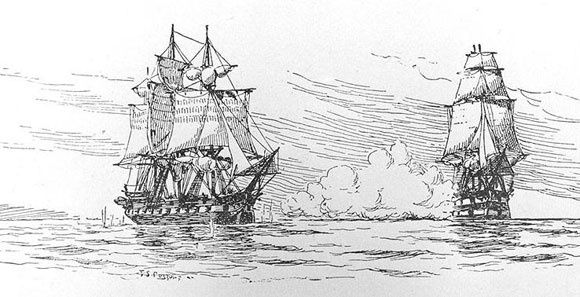Foreign Policy
With the Louisiana Purchase and his success at lowering taxes and the national debt, Jefferson completed one of the most successful presidential terms in United States history. In 1804, he easily won re-election against the Federalist candidate, Charles Pinckney. Jefferson, however, would face new headaches from an old source in his second term.
Great Britain and France again went to war in 1803. At first, American merchants thrived as a neutral country trading with both sides. As the war escalated, the British and the French each imposed a blockade on the other. Both nations ignored the rights of neutral nations and began seizing American ships. Between 1803 and 1807, the British seized 500 U.S. ships and France seized 300 American vessels.
Adding further insult, Britain returned to its policy of impressment. Royal sailors searched American merchant vessels for people they claimed were deserters from the British Navy. They seized thousands of men. Some were, in fact, deserters, but many were U.S. citizens. These Americans were then forced to serve in the Royal Navy. In a dramatic affront in June 1807, the British warship, Leopard, sailed into U.S. waters and attacked and seized the American frigate, Chesapeake.

War fever swept the nation after the Chesapeake incident. Enraged Americans demanded retaliation against the British.
If you were Jefferson what would you have done? |
||
|---|---|---|
Go to War |
|
|
Do Nothing |
|
|
Do Something Else |
|
|
If you were a merchant, what would you have wanted Jefferson to do? |
||
|---|---|---|
Go to War |
|
|
Do Nothing |
|
|
Do What He Did |
|
|
Meanwhile, Britain and France made no change in their objectionable policies.
Jefferson's Presidency
The presidency of Thomas Jefferson lasted from 1801 to 1809. Some historians rank him as one of the nation's best chief executives, while others believe he did his best work before 1801. What do you think? How effective was Thomas Jefferson as President?